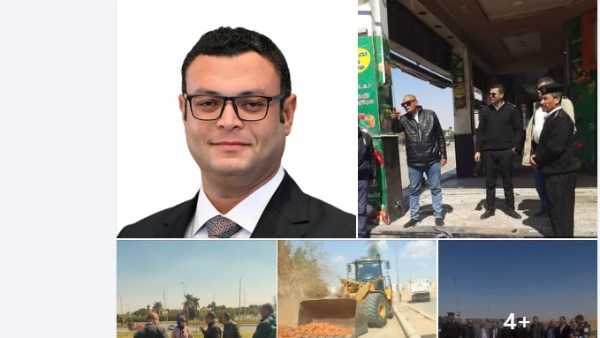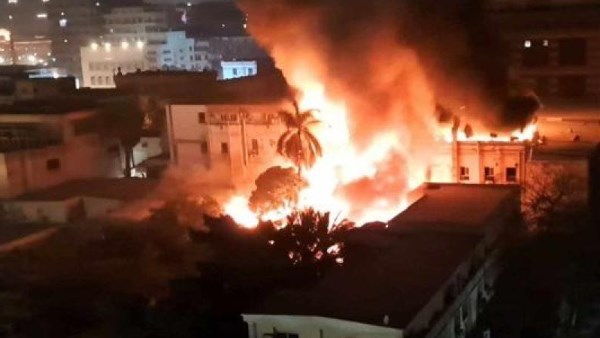
Authorities project the current wheat harvest will be less than 2.5 million tons
Drought Gripping Morocco Is Bad Omen for Global Food Supplies

Mohamed Sadiri has farmed the same 3 hectares in western Morocco since 1963، and he’s never seen the land this parched.
Wheat yields plummeted last year to 1 ton per hectare (2.5 acres)، his smallest harvest ever، as the worst drought period in three decades envelops the North African nation. The 25-foot-deep well on Sadiri’s plot dried up، and he can’t afford to dig any deeper. So now he’s trying barley، a more resilient crop.
Sadiri is among 1.2 million grain farmers suffering the brunt of climate change in Morocco، where the frequency of droughts has quintupled this century. The impactwill ripple far beyond its borders: The country stands to bring in record volumes of wheat —at a time when major shippers like France and Russiaare suffering harvest setbacks of their own —and less of its fruit and vegetables will line store shelves in Europe، the US and the rest of Africa.
The current wheat harvest
“We haven’t had a good year since 2000، and the last three years were the worst،” Sadiri، the 77-year-old farmer، said under a relentless sun and hot wind raising billows of dust in Ezzhiliga. “All we can do now is pray for God’s mercy.”
Authorities project the current wheat harvest will be less than 2.5 million tons — far below what the national budget is predicated upon and the kingdom’s lowest since the global food crisis of 2007. Imports will be threefold that amount،the US government forecasts،a fifth seasonin six that production has trailed purchases.
The longevity marks a starkshift in Morocco’s ability to supply its people with food staples and will add to expenditures just as the governmentfaces a 120 billion dirham ($12 billion) reconstruction bill after September’s deadly earthquake. It’s also spending 20 billion dirhams to upgrade soccer stadiums for a 2025 African championship and the 2030 World Cup.
Memories of the Arab Spring
And the situationstirs memories of the Arab Spring a decade ago، when climbing food prices contributed to uprisings across the region. Although its neighbors are facingbetter grainyields this year، Egyptian cropssuffered fromextreme heatand Algeria and Tunisia grappled with droughtin 2023.
“Farming is living a tragedy — especially grains،” said Abderrahim Handouf، a researcher at the state-run National Institute of Agricultural Research. “We will be importing more wheat over the short-to-medium terms because fixing the situation will require lots of time.”
Successive droughts have deflated Morocco’s annual production of wheat، durum wheat and barley to 3 million tons versus 10 million tons in a wet season three years prior، said Michael Baum، acting deputy director general of the nonprofit International Center for Agricultural Research in the Dry Areas.
The situation is no more promising for farmers planting the tomatoes، bell peppers، strawberries and olives that fill supermarket aisles abroad. El Guerdane، the biggest irrigated farming area at 10،000 hectares، has been without water since November amid a sharp drop in reserves held by most of the kingdom’s major dams.









-32025522145948.jpg)
-320255125357264.jpg)














